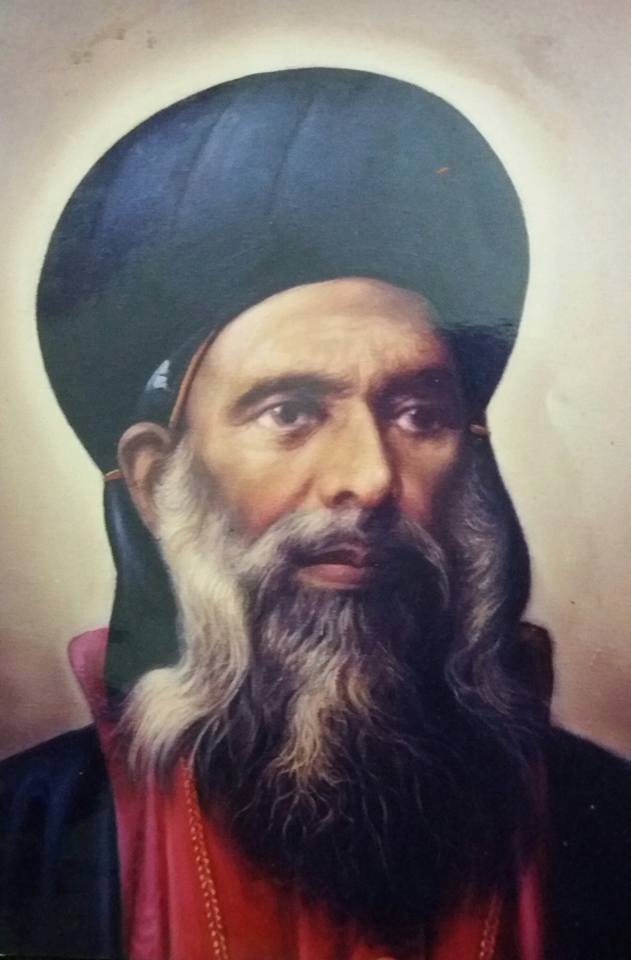The third bishop (Patriarch) of Antioch, succeeding Evodius around 68AD. Ignatius, who most likely, with Polycarp Bishop of Smyrna (commemorated 23 February) were fellow-disciples under St. Peter and St. John. It is a tradition by no means inconsistent with anything in the Epistles of either. His subsequent history is sufficiently indicated in his Epistles.
The seductive myth which represents this Father as the little child whom the Lord placed in the midst of his apostles (Matthew 18: 2) indicates at least the period when he may be supposed to have been born.
Professor Ramsay suggests, that he belonged to a Syrian family, strongly affected by Western civilization, which had discarded native names. It is clear from the nature of his punishment that he cannot have been a Roman citizen, in which case he would have been sent, like St. Paul, to Rome for trial, and, if condemned, would have been beheaded. From the scattered hints which the letters give, e. g. Rom. 9, 'born out of due time,' and the expression, 'last (of all),' found in Eph. 21, Trall. 13, Smyrn. 11, we may conclude that his conversion was late in life (Ch. in R. Empire, p. 440, note.)
According to ecclesiastical history and tradition, St. Peter the Apostle established a bishopric in Antioch and became its first bishop and was succeeded by Evodius for the converted Jews and St. Ignatius the Illuminator for the converted Gentiles. After the martyrdom of St. Peter in Rome, he was succeeded by St. Evodius who was martyred in 68AD, and St. Ignatius respectively. St. John the Chrysostom says that St. Peter appointed St. Ignatius Bishop of Antioch, who governed the See for forty years.
Several of his letters have survived to this day; he is generally considered to be one of the Apostolic Fathers (the earliest authoritative group of the Church Fathers) and a saint by both the Roman Catholics, who celebrate his feast on October 17and February 1, and the Orthodox and Eastern Catholic churches, who celebrate his feast on December 20, The Syriac Orthodox Church celebrates his feast on November 17 the day he martyred.
St. Ignatius was so delighted by his name Theophorus "God-Bearer" (sufficiently expounded in his own words to Trajan or his official representative), since he had the Name of the Savior in his heart and prayed unceasingly to Him, that it is worth noting how deeply the early Christians felt and believed in (2 Corinthians 6: 16) the indwelling Spirit.
Saint Ignatius was zealous and spared no efforts for toiling in the fields of Christ. To him is attributed the establishing within church services of antiphonal singing (for two parts or choirs). During time of persecution he was a source of strength to the souls of his flock, and was himself ardent in the wish to suffer for Christ.
Ignatius has been censured for his language to the Romans, in which he seems to crave martyrdom. But he was already condemned, in law a dead man, and felt himself at liberty to glory in his tribulations.
We learn from his letters that he voluntarily presented himself before Trajan at Antioch, the seat of his bishopric, when that prince was on his first expedition against the Parthians and Armenians (A.D. 107); and on professing himself a Christian, he was arrested by the Roman authorities and transported to Rome, condemned to the wild beasts in the arena. They hoped to make an example of him and thus discourage Christianity from spreading. Instead, he met with and encouraged Christians all along his route. After a long and dangerous voyage he came to Smyrna, of which Polycarp was bishop, and thence wrote his four Epistles to the Ephesians, the Magnesians, the Trallians, and the Romans. From Smyrna he came to Troas, and tarrying there a few days, he wrote to the Philadelphians, the Smyrnaeans, and Polycarp. His letters proved to be influential in the development of Christian theology. He then came on to Neapolis, and passed through the whole of Macedonia. Finding a ship at Dyrrachium in Epirus about to sail into Italy, he embarked, and crossing the Adriatic, was brought to Rome, where he was martyred on the 17th of November 107AD (according the Syraic account), or, as some think, who deny a twofold expedition of Trajan against the Parthians, on the same day of the year 116AD.
REFERENCES

